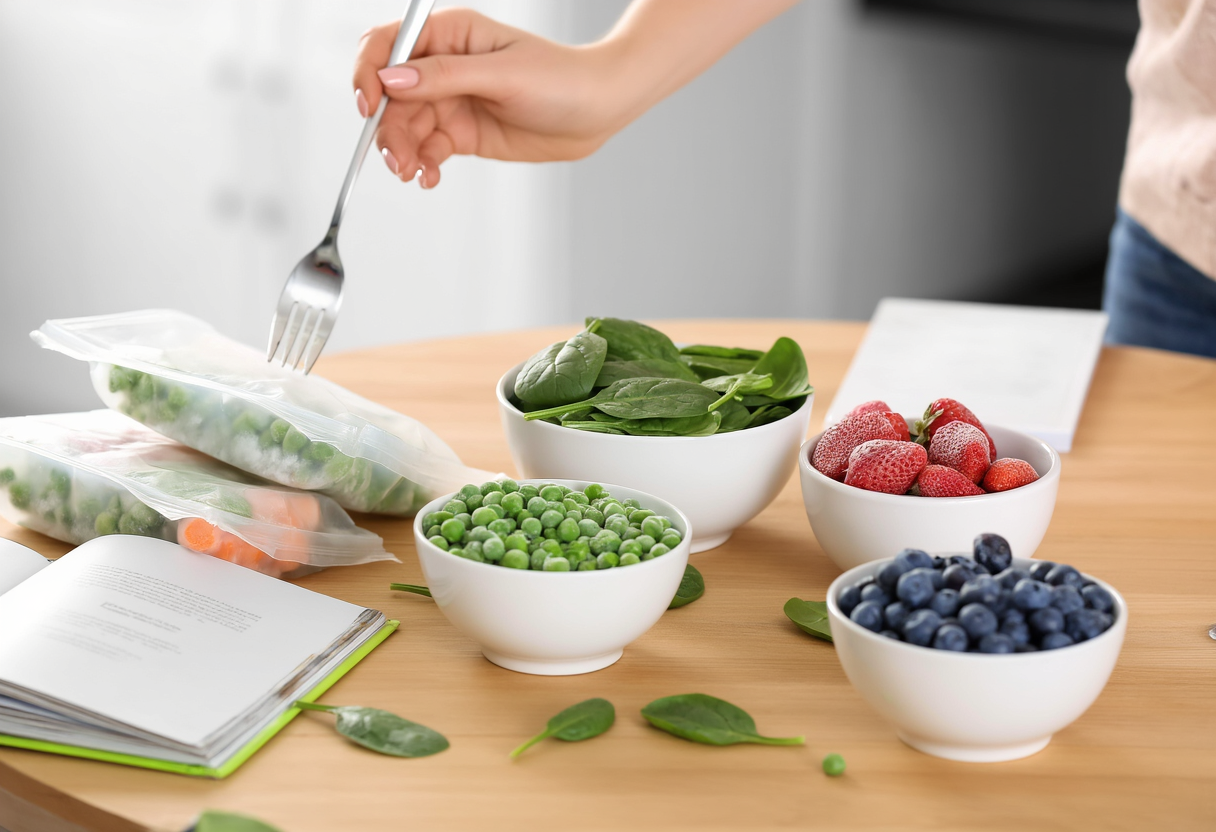Exploring the Benefits of Organic Frozen Food: Convenience Meets Nutrition
Organic frozen food is becoming a staple in the diets of health-conscious consumers seeking balanced nutrition and convenience. This article investigates the myriad benefits of organic frozen food, its rising popularity, and how it meets the demands of today’s busy lifestyles.
The Convenience of Organic Frozen Food
In our fast-paced society, the convenience of organic frozen food cannot be overstated. These options allow consumers to enjoy nutrient-dense meals without the extensive preparation time associated with fresh ingredients. By stocking their freezers with organic frozen food, individuals can quickly prepare breakfast, lunch, or dinner at a moment's notice. This flexibility is especially appealing for families who juggle multiple schedules or for working professionals with limited cooking time. Moreover, organic frozen food typically boasts longer shelf lives than fresh options, reducing the frequency of grocery shopping while minimizing food waste. Embracing organic frozen food ultimately empowers consumers to enjoy healthy meals without sacrificing time or effort.
Nutrition at Its Best: Understanding Organic Frozen Food
One of the standout features of organic frozen food is its nutritional profile. Unlike conventional frozen options that may include preservatives, organic frozen food adheres to strict guidelines regarding ingredients. This translates to healthier choices for consumers, ensuring meals are not only quick but also rich in vitamins and minerals. Freezing organic produce at peak freshness locks in its nutritional value, making organic frozen food a viable alternative to fresh. Furthermore, many organic frozen brands prioritize sourcing local ingredients, which not only supports community farmers but also guarantees superior quality. For those seeking a balance between convenience and nutrition, organic frozen food presents an excellent solution.
The Environmental Impact of Organic Frozen Food
Choosing organic frozen food also aligns with environmentally conscious practices. Organic farming methods promote biodiversity, healthy soil, and reduced chemical usage, contributing to less environmental degradation. By opting for organic frozen food, consumers are indirectly supporting sustainable agriculture and responsible sourcing. This shift towards conscious consumption is increasingly prevalent among younger generations who prioritize sustainability in their purchasing decisions. Additionally, the reduction of food waste through frozen options helps address one of the prominent environmental challenges we face today. Highlighting these eco-friendly aspects can empower consumers to make informed choices that positively impact both their health and the planet.
Market Trends in Organic Frozen Food
The organic frozen food market is expanding rapidly, driven by shifting consumer preferences and a growing awareness of health and wellness trends. It is projected that the demand for organic frozen food will continue to surge as more individuals recognize the benefits of these products. As this market evolves, companies are innovating their branding and marketing strategies to engage consumers effectively. This includes unique offerings like plant-based frozen meals, representing an exciting intersection of health trends and convenience. Additionally, promotional campaigns highlighting the unique aspects of organic food—such as quality and sourcing practices—play a critical role in attracting a loyal customer base. Understanding these market trends will be essential for both consumers and brands aiming to make a mark in the organic frozen food space.
User Experience: The Appeal of Organic Frozen Food
User experience is paramount in the organic frozen food landscape. Consumers want accessible, appealing packaging that communicates the product’s benefits clearly. Innovative designs that emphasize organic ingredients and nutritional information can enhance engagement and attract buyers. Moreover, feedback loops between brands and customers enable companies to refine their products based on consumer insights. For instance, improving taste profiles and expanding flavor offerings will undoubtedly cater to diverse palates and dietary needs. Additionally, brands that actively participate in consumer education—providing recipes and meal inspirations—strengthen their connection with customers. This enhanced interaction fosters community around organic frozen food, turning satisfied consumers into brand advocates.
Conclusion: The Bright Future of Organic Frozen Food
The future of organic frozen food appears bright as more consumers appreciate the benefits of convenience and health its products offer. With ongoing interest in nutritional balance and sustainable practices, the organic frozen food sector is poised for continued growth. As brands become more innovative, we can expect to see an expansion of offerings that align with current health trends and user preferences. The integration of technology will also enhance convenience, making the purchasing process seamless. Ultimately, consumers stand to gain enormously from this ever-evolving market, as organic frozen food becomes an increasingly integral part of modern nutrition. Embracing these changes will lead to healthier eating patterns without the compromises of traditional meal preparation.
